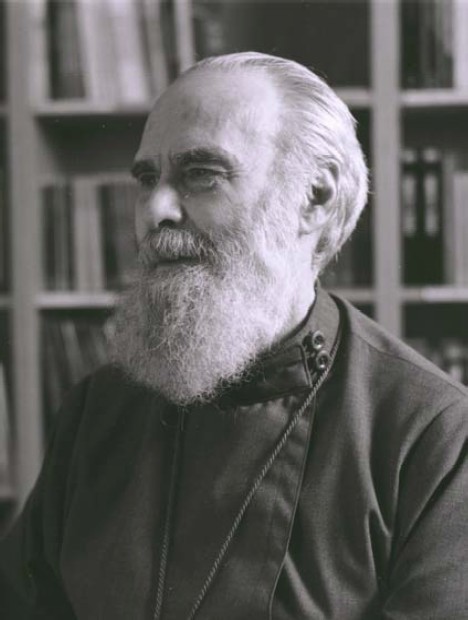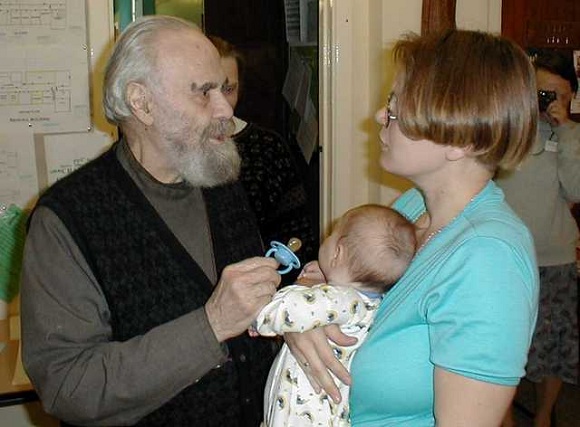David Kissen Memorial Lecture. March 3, 1969.

After the very warm welcome which I have received, I should like to start with apologies. The first thing that I should really apologise for is being here at all. I was a physician for ten years but I was trained thirty-five years ago and I am out of date. And after the crystal-clear and beautiful speeches in English which you have heard, you will be submitted to a long dissertation in foreigner’s English which will probably be a trial for many. And lastly, and perhaps this is the most important point, I don’t feel qualified to give this Memorial Lecture because I did not know Dr. Kissen personally and all I know about him I know from reading and from the impression I have gained from perusing some of his writings. I can’t even therefore pay a worthy tribute either to his person or to his medical and scientific work; I wish only to speak on a subject which I believe would be meaningful to him and to speak of it in a way of which he would not disapprove.
When we speak of the care of the individual, we must be continuously aware — and you are probably more aware of the fact than I am — that an individual is always part of a set-up and therefore we cannot speak of an individual as though he were an entity in himself. Whenever we do so, whenever we think of people in their isolation, cut off, contrasted from, opposed to, either the group to which they belong or any other individual, we use this word in the worst possible sense.
One of the problems which we have in medical practice is never to allow a person to fall into this category of the individual, the last term of dividedness, disruption and separation — the point beyond which one cannot separate more elements without destroying finally the being we are concerned with. I would now like to take up this question of the care of the individual from several angles.
I believe it is very important for us to remember that the preparation of people for times of crisis begins in times when there is no crisis. One cannot prepare for the great feats of life simply by waiting until the dramatic situation arises and hope that the person will find within himself and within his group sufficient courage, encouragement, ability and resources to face it. And so it is very important, I believe, to start the care of the dying while the individual is still in good health and not yet ill, at the moment when he is in possession of all his strength, of all his lucidity, of all his gifts. That means that people will be able to face crisis, illness, death, with courage and ability if, in the course of all their life, they have learned to live fully and abundantly instead of being obsessed with the thought of illness or destruction; and in that respect the attitude which we have to life, the significance we attach to our existence and eventual disappearance, is essential. If what matters most of all for us is survival, is biological existence, is deriving from life all the pleasure or advantages it can give us, we open up an enormous field of distress and anguish: fear of loss in all possible respects, the loss of our physical integrity, the loss of our nearest and dearest, the loss of our mental integrity, the loss of everything that makes sense of life for us.
For men of my generation, brought up in the conditions of the Russian Revolution, emigration, and the years after, one of the greatest things they received from those older than themselves was the conviction that the biological, the physical existence which is ours is of no importance to anyone — including ourselves — and that it only acquires significance from what we live for and what we are prepared to die for. Unless we have that or a similar kind of standard, we shall spend our lives trying to protect our physical integrity, our moral security; we shall never have lived, we shall have been timid and useless parasites of life. This, I think, is paramount both for the conduct of normal, ordinary, healthy life, and for the conduct of people who will have to face illness.
One particular point is that of suffering. We live at present I think, in a cowardly and soft civilization. People are afraid of suffering and are not prepared to face it. The result is not only that people resort increasingly to tranquilizers and drugs, but that the fear of suffering becomes worse than the suffering itself, because to be afraid of suffering is an anguish far greater than the actual facing of tolerable suffering. I am not speaking, of course, of those degrees of suffering which are beyond human endurance. But you must also remember that human endurance goes far beyond what we usually imagine it to be. We know from the concentration camps, from prisons and from hospitals that people can face infinitely more than they imagine they can, when they grow to the full stature of their human dignity and the full measure of their human value. And I would therefore urge the education of people in the value of a life which is worthy of Man, worthy of Society, and worthy of Life itself. Next, an education in facing suffering in a manly, courageous way, treating it as a school, as a possibility of growing to the full stature which is Man’s true stature; otherwise we shall never be able to find enough security because the fear of suffering will always be greater than the precarious security we have. Suffering, illness, crisis may occur unexpectedly at any moment, and if we are not protected against them they can overwhelm us.
The second aspect of the question of the care of the individual which I should like to tackle is visiting sick people. Visiting the sick may be a great blessing: it may also be one of the greatest curses that can be inflicted on a sick person. I know that the Gospel teaches us that it is a virtue to visit the sick. I know also that in applying the counsels and the commandments of the Gospel one should also be guided by discernment and by charity, and that very often the charity which we express by visiting the sick could be expressed so much better by giving them a chance to recover in peace. I have had occasion to be ill, and to avoid being the victim of the charitable visits of my friends, I put on my door a note which was rather resented by some. It said: This is a quotation from the life of St. Arsenius the Great. A noble lady from Constantinople came into the desert to visit him and said, “Oh, Father, give me a commandment which I could keep throughout my life”. Arsenius replied: “Here is a commandment. Remember that you have pledged yourself never to break it. Whenever you hear that Arsenius is in one place, go to another”!
 Apart from the charity in refraining from visiting people who could so well and so happily do without these painful, tiring, demoralising visits, there is also an art in visiting, not only when you are a priest but also when you are a friend or a relative. I think that a visitor could very often contribute a great deal to the healing process by helping the person who is ill to be earnest, collected, in possession of all the intensity of life he is capable of, and not dispersed, distracted, emptied. You know very well how emptying certain conversations are and how draining certain visitors can be. I believe that the clergy, young and old, should learn, and doctors, nurses and relatives should be taught, that one of the things that can kill a meeting or a visit to a patient is small talk, because small talk is very often used as a smoke-screen by the patient to protect himself against the necessity of being earnest, of expressing his anguish, of being true and real. The more you use small talk, the more you allow this to happen, the more unreal the patient becomes, the less grasp he has on life, on illness, on his own recovery.
Apart from the charity in refraining from visiting people who could so well and so happily do without these painful, tiring, demoralising visits, there is also an art in visiting, not only when you are a priest but also when you are a friend or a relative. I think that a visitor could very often contribute a great deal to the healing process by helping the person who is ill to be earnest, collected, in possession of all the intensity of life he is capable of, and not dispersed, distracted, emptied. You know very well how emptying certain conversations are and how draining certain visitors can be. I believe that the clergy, young and old, should learn, and doctors, nurses and relatives should be taught, that one of the things that can kill a meeting or a visit to a patient is small talk, because small talk is very often used as a smoke-screen by the patient to protect himself against the necessity of being earnest, of expressing his anguish, of being true and real. The more you use small talk, the more you allow this to happen, the more unreal the patient becomes, the less grasp he has on life, on illness, on his own recovery.
One of the things which is difficult to learn but which is perhaps the most helpful of all, is the ability of the visitor to sit down and keep quiet. And this keeping quiet implies two things; on the one hand this should be done in such a way that your relative or your friend or your charge is aware that you are there for any amount of time, you are not in a hurry, you are completely present. You know very well how different a visit can be when the person sits with an obvious expression on his face that he has got ten minutes and that he is waiting for the end of them before he says, “Now, I must go”. Very often we find ourselves looking around at the people nearby and the person we are supposed to be with is aware that we are not really there at all. We are physically present but our mind is wandering, is still on the previous patient or already on the next, or on some duty or other thing we mean to do. If you visit a person make it absolutely clear that all the time you have to spare — let it be five minutes — that these five minutes belong to him completely, undividedly, that during these five or more minutes there is no other concern in the world that captures your imagination, there is no person in the world that matters except this man in front of you. And then learn to be silent.
Defeat small talk by deep, concerned, human, real silence. Silence is something that is not easy to learn. Settle down, take the hand of your patient or your friend, and say quietly, “I am glad to be with you”. Then drop into silence, be with him, do not cast between him and you a whole world of irrelevant talk, or irrelevant emotion. Give him the joy of being with you, of knowing that being with him is a sufficient joy for you. Then you will discover what I have discovered abundantly in the last 30 or 40 years, that people at a certain moment become capable of talking, but talking earnestly, talking in depth, saying just the few phrases that are worth saying. You will discover something even more extraordinary — that you are capable of doing the same.
Now a last point, and this will take me a little longer: it is the question of preparation for death of incurable patients or of people who have grown old and are going to die.
First of all, may I draw your attention to the fact that preparation for death does not apply only to those who find themselves under our care in hospital or in their own homes. It applies to each of us, because each and all of us are afflicted by a common lethal illness which is mortality, and the sooner we face it — the more we are aware that we are in the process of dying from the moment we start living — the better. There is a great advantage in facing tragedy in advance, in being prepared for things. I don’t mean to say that one can rehearse one’s own death, but one can quite certainly have thought out many of those things which will have to be faced and which, when they come inadvertently upon us, distress us more than the main exercise. So I think there must be an education in facing death. It will, I believe, take two forms. First of all, if you are believers you must learn to prepare not for death but for fullness of life. And if you are truly unbelievers, if you really think that there is nothing after death, then you must prepare cheerfully and peacefully for the fact that there will be a moment when all knots will be untied and you will become part of that peaceful, harmonious and rich Nature.
I would probably not say this to Russians but I will say it to the English (to the British, let us say, because there are Scots in our midst): when I came to this country twenty years ago, I was terribly, and I must say unpleasantly, impressed by the attitude of people to death. In this country it seems to be almost indecent to die. People treat death as though it were something one wouldn’t do to friends and relatives if one were really more thoughtful and a little bit better bred. But if it happens, if you really have allowed yourself to do this indecent thing, then it must be put right as quickly, as efficiently, as technically as possible. The children are sent away, the family locks the door and sits in the drawing-room facing the teapot and all its appliances, the undertakers arrive and do their job, the body disappears, and what friends, relatives, and perhaps, in very daring families, children will face is a coffin, with untold horror inside. I find this a destructive thing from an educational point of view, and I feel from what I have seen that it does destroy people.
About ten years ago I was called into a house where a most beloved grandmother had died. The family was there — except for the children. So I said, “Where are they?” “Oh, we have sent them away”. “Why?” “Because they can’t possibly face death”. I said, “Why?” “Because they know what death is”. I was impressed, you see, that these children of six and eight knew what death was, so I asked the parents what it was that they knew about it, and the answer came, “The other day they found in the garden a rabbit half-devoured by cats, so they know what death is”. I said, “Do you really imagine that it will be a healthy thing for them to go through life imagining that death is like that, and that whenever they see a coffin, what is inside if a half-torn half-devoured beloved body, untold horror in a coffin?” We had a long discussion and in the end the parents said to me, “Well, if you accept the responsibility for it, take the children to their grandmother but, whatever happens, you must cope”. So I fetched the children. They were a little dismayed at being brought back and discovering that their grandmother had surreptitiously died. I took them to the door of her room and said, “Granny is dead”. The boy asked, “What does that really mean?” I said, “You remember she said so often, ‘I long to be dead, to be with your grandfather’. This is what it means, and now come and see what it looks like”. So they were taken in, they stood for a moment, and then one of them said, “So that is death. How beautiful it is”. I think that the great majority of children will react in this way.
I do not only surmise this reaction, I know it for a fact as in the Orthodox Church we always take the funeral service with an open coffin, and everyone who comes to church gives a last kiss to the person who has departed. All our children, from the time they are very small, are therefore accustomed to come, to see the body, to give a last kiss, and to discover that death is neither annihilation nor untold horror. I think that if the grown-ups can avoid introducing into the minds and hearts of the children their own morbid views and emotions, the children will be a great deal healthier. I know children who have been educated in that open way treat death with a reverence and with a sense of awed joy. I don’t mean of pleasure or rejoicing, but of the mysterious feeling we can have of exaltation when we meet something very great although it is tragic.
Another thing in the education concerning death: before we acquire morbid attitudes towards it, we are capable of thinking of it from within the fulness of life as an event within our life which can be faced, lived and lived through. Remember the war games of the children, the shooting, the falling, the shouts of “It’s your turn to be killed. No, no, don’t move, you are dead, you must not budge yet”. You may say it is just games. Yes, but in these games the children very often measure their capacity for emotion. They learn how far they can go in the tension of an imaginary tragedy which is as real as if it were lived in actual fact, but without the dangers.
And now there is the problem of the dying and the people around them. I shall come back to things which have already been said during this meeting. First of all I could not agree more with the fact that the great majority of patients know that death is coming, and the fact that we are afraid to speak of it causes, as a result, an appalling loneliness and misery. May I be completely un-English at this point and say something personal. My mother died of cancer. She was dying for three years, during which we lived together, and she died at home; and I would like to draw a few conclusions from what I learned then.
When it was discovered that she had cancer, her doctor said, “Of course you will say nothing to her”; I replied, “Of course I will tell her at once”. He said, “Then it’s your responsibility”, and I said, “I will take it”. I went to tell her. What I learned from it is this — that the moment this barrier of silence is broken you can join forces in meeting the anguish, the fear and the distress of death. Very often in those three years I came to my mother and said, “I am miserable that you are dying”, and she put her hand on me and gave me strength. At other times she would say: “I am frightened, and I am miserable at the thought of parting”. And then I was there to give her whatever support I could. The result was that neither she nor I at any moment were isolated from each other, left to cope with something which one cannot cope with alone.
Another thing I have learned, by comparison and reflection, is that there is no such person who, by function, should be the one who tells the other. What I mean to say is that it is neither the priest, nor the surgeon, nor the general practitioner, nor the nurse, nor the husband, nor anyone who by the fact that he is in a given position is necessarily the right person. The right person to tell a patient is that person who is in a position to speak, who is prepared to speak and to stay and carry the burden. What usually makes the telling of patients so incredibly difficult is that it is a question of hit and run. Someone comes, gathers all his or her energies, tells the patient, the patient is overwhelmed, stunned, and then comes the phrase, “I will bring you a nice hot cup of tea”. And then the one who has dealt the blow goes away, is away for perhaps five or ten minutes, just those five or ten minutes which are pure hell and the deepest point of the crisis. Then when the tea is brought, the small talk begins — and the right moment has been killed.
If you are prepared to speak, you must be prepared to bear all the burden at once and without trying to escape it, without trying to alleviate it, without trying to make things easier. No. Remain real, remain true, absolutely real, absolutely true to the point of utter misery, utter distress. Share the distress. Distress shared will give a greater strength than any sort of artificial help. During my mother’s illness, what I saw was this. Several times she said, “I am dying and yet we have never been so perfectly happy”. Truth was there, reality was there, complete sharing was there. I am not trying to tell you that this was easy in any way, but it was creative, it had depth and therefore it could be faced.
At this point I want to say that we undervalue so much the greatness of the human spirit. We expect no courage, we expect no manliness from the people we deal with. We always think they are too weak to face things. It is untrue. People are much greater and much stronger than we imagine, and when unexpected tragedy comes and hits people, we see them so often grow to a stature that is far beyond anything we imagined. We must remember that people are capable of greatness, of courage, but not in isolation, not in solitary confinement, not in conditions which are created when someone is submitted at times to torture and at other times to isolation. They need the conditions of a solidly linked human unit in which everyone is prepared to carry, to bear the burdens of others. And the person who is ill will probably carry more of the burdens of the others than we imagine, giving them courage and depth.
I do not imply that we should deal in the same way with each and every patient. There must be thoughtful discrimination. And here is a point which I believe to be important: preparation for death is the wrong word. In the context of belief, the preparation should be for life. What I mean is this. When I see people who are going to die or who may not recover from an illness, I do not start by telling them “Death is at your elbow. Be manly, courageous, ready to face it”. What I say to patients — and I don’t wait for them to be terminal patients but long before death is already in their bones, long before they feel the decay and destructiveness of it — I say: “Look, every illness is a moment when we are stopped from the turmoil of life, a moment when we can look at life and sort things out — to discover whether they are transitory and unworthy of life and of you or whether they are deep, significant and must stay for ever. Do that”.
Then over a long period we work at it so that gradually all in the life of Man which is lethal and destructive both psychologically and spiritually — the hatred and the negativeness — is gradually eliminated by meeting the people offended, forgiving the people hated and so on. In the end the sick person can be brought gradually to a point when all that is left is love, concern, and a plenitude of life. Sure enough there is a residue of death of weakness, of imperfection, but the overwhelming weight is on life. I have seen that it does work — during my hospital practice, during the war, and throughout all the years since then. We must prepare people to become aware that to die does not consist simply in losing life, in divesting oneself from life on earth, but in putting on eternity. We cannot do this with everyone but we can certainly do a great deal more than we attempt.

I think I will end these remarks at this point. The care of the individual is a complex care that involves all the individuals that make up the social group, the small group of the family, and the bigger ones — as far afield as they reach. Every individual in the group should be submitted to this education of life, which is an education of courage and meaning. Only if we are a group of people who stand for values and not for mere existence, only if we teach the young and the old that life and its value can be measured by what you live for and die for, and not by your blood pressure or your state of health, only if people are prepared to face in everyday life great and small difficulties and problems in a daring, manly and creative way, can we think of helping them to face the major crisis of life which is terminal or prolonged illness. If we can do this we shall have done something not only for the sick person but for people in the course of all their life — they will have lived towards fulfilment, they will have lived with daring and courage, regardless of fear, regardless of things too small for the human scope and scale. That I think is essential if we wish to have a real, true, creative, consoling and life-giving care of the individual when it comes to illness.
















